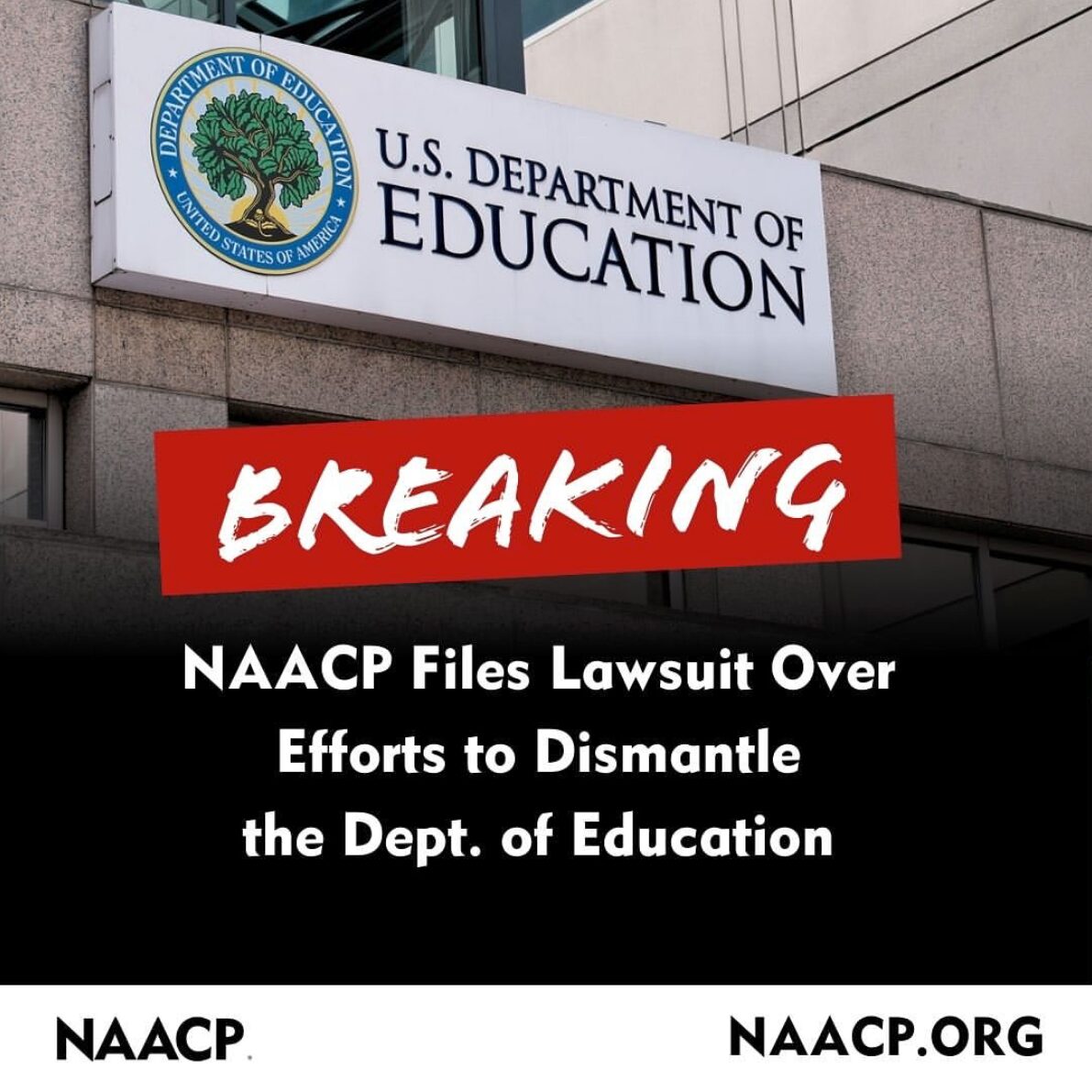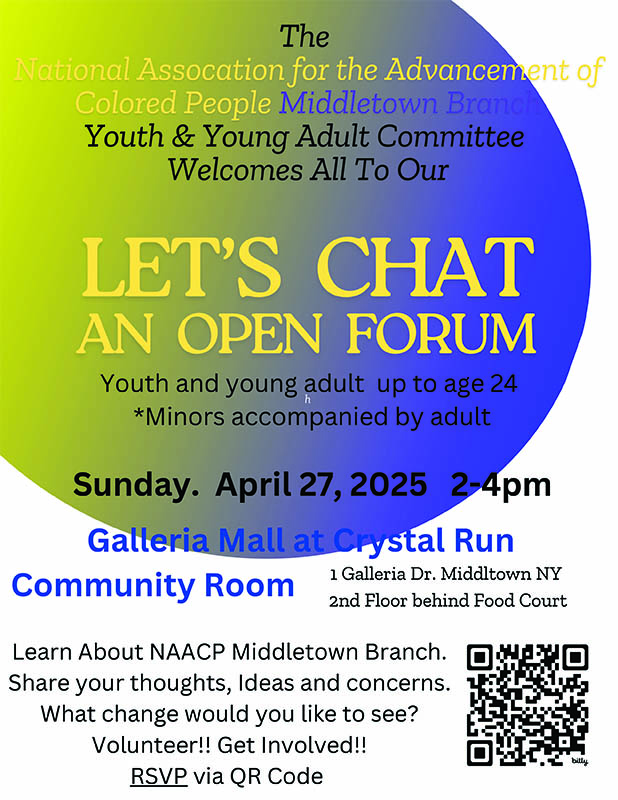Committees and Game Changers
Standing Committees
Most of the work of the NAACP is accomplished within standing committees. Each has a specific charge, and standing committees work at the local, state, and national level to monitor circumstances and enact change.
NAACP Bylaws lay out roles for each of the following standing committees. Not all of these committees are active within every branch. To see which committees are currently active within the Middletown Branch, please see our About Us page.
If a standing committee is not active, it is often because the branch lacks a chair. If you are interested in chairing or serving on any of these committees, please let us know!
The Committee on ACT-SO shall follow these rules: (1) must be properly registered annually with the National Office and follow all directives outlined by the National ACT-SO Program; (2) understand that it is a major project of the NAACP. With ACT-SO, the NAACP is providing an instrument through which African-American youth are encouraged and inspired toward excellence in academic and cultural pursuits while benefiting from the maximum support of their communities; (3) uphold its goal of ACT-SO that affords the same respect for African-American Scholastic and cultural achievement that is given to heroes; and (4) recognizing that ACT-SO conducts annual academic competitions for students in grades nine (9) through twelve (12) in NAACP Branches throughout the country in accordance with the published guidelines of the National Office and oversight of the National Director of ACT-SO Program.
The Committee on Armed Services and Veterans’ Affairs shall: (1) seek to establish a working relationship with those agencies in government, national, state and local, having the responsibility in the affairs of members of the various Armed Services and Veterans and to see that the programs to which they are responsible are administered fairly and justly to members of the minority community; (2) study conditions pertaining to veterans and members of the Military Service and their dependents and/or survivors in the community; (3) serve as a center of information on matters affecting the members of the Active Military, Reserves, State National Guard and Veterans; (4) maintain a repository of materials, information and forms to be used in assisting veterans and/or dependents of veterans and military personnel with their problems; (5) receive and act on all complaints relative to acts of discrimination on account of race, color, creed, or denial of benefits to which they are entitled because of discrimination; (6) prepare a quarterly report on committee activities to be submitted to the Executive Committee of the Unit and the National Director of Armed Services and Veterans Affairs
The Committee on Communications, Press, Publicity, and Technology shall: (1) seek to promote media content consistent with fundamental NAACP goals, which include the elimination of racial isolation and fear and the furtherance of multiracial and cultural understanding; (2) work to eliminate employment segregation and discrimination in those industries, comprising the communications, arts, and sciences (radio, telephone, television, motion pictures, newspapers, books, related computer communications, business, and cable television); (3) seek to ensure Black minority ownership and control of print and electronic media, and technology enterprises – both hardware and software; (4) monitor local and national media, especially advertising performance; (5) provide the National Office with research and data on those local businesses engaged in communications, arts, sciences, and technology; (6) seek to ensure that all people have a meaningful right to choose from and have access to a variety of high quality telecommunications goods and services at reasonable cost; (7) work to ensure that various current and newly advanced technologies are used in a manner that promotes truth, avoids inherent programming biases, and provides education on the positive and negative attributes of a constantly changing technology environment; (8) embrace technology as a key social determinant of health and for positively advocating and educating at the grassroots level; and (9) monitor social media and other outlets for appropriate branding, marketing, and proprietary use.
The Committee on Community Coordination shall enlist the support of other community organizations on issues affecting the interests of African Americans and other communities of color.
The Committee on Criminal Justice shall: (1) seek to eliminate harsh and unfair sentencing practices that are responsible for mass incarceration and racial disparities in the prison system, (2) support and seek to increase trust and public safety by advancing effective law enforcement practices, (3) fight for the restoration for the voting rights of formerly incarcerated people and the removal of barriers to employment, (4) elevate the voices of crime victim survivors in order to identify and advance systemic breakdowns existing in the criminal justice system that perpetuate crime, (5) resolve to end the war on drugs for its disproportionate collateral consequences harm communities of color, (6) seek the institution and availability of alternatives to incarceration including education, employment, mental health services, (7) eliminate zero tolerance policies implemented in our schools which are keeping kids out of the classroom and putting them on a path from the schoolhouse to the jailhouse, (8) investigate programs implemented in our local law enforcement agencies which derail from their main purpose of safety and order to conduct the work of federal agencies for which they do not have the capacity, and (9) seek budget modifications in states where incarceration receives more funding than education.
The Committee on Economic Development shall implement local efforts and support national programs to preserve and expand economic empowerment among African-Americans and other communities of color by: (1) researching and establishing relationships with private and public entities; (2) supporting the work of the National Office in monitoring the progress and activity of private and public entities designated by national programs; and (3) implementing local efforts to promote the growth of business ownership; (4) increasing employment and job creation; and (5) encouraging business development and home ownership.Accordion Content
The Committee on Education shall: (1) seek to eliminate segregation and other discriminatory practices in public education; (2) study local educational conditions affecting minority groups; (3) investigate the public school system and school zoning; (4) familiarize itself with textbook material there from which racially derogatory; (5) seek to stimulate school attendance; (6) keep informed of school conditions and strive to correct abuses where found; (7) investigate the effects of standardized and high stakes testing practices; (8) teacher certification; (9) promote parental involvement in education; and (10) aim to be a center of popular education on the race question and on the work of the Association.Accordion Content
The Environmental and Climate Justice Committee shall (1) seek to address environmental inequities at the local level and advocate for environmental justice; (2) develop a comprehensive and holistic local agenda to reduce pollution; (3) advance energy efficiency and clean energy at the local level; and (4) develop and advocate for disaster resilient infrastructure policies and practices.
The Finance Committee shall consist of the President, Treasurer, and at least one other member. It shall study the financial needs of the Unit and shall be responsible for drafting an adequate annual budget.
The Freedom Fund Committee shall plan and conduct fund-raising activities, entertainment and other projects, for local and national purposes within the scope of the Association’s program. It shall work closely with the Financial Committee.
The Health Committee shall: (1) work to promote, protect and maintain the health of African Americans; (2) assess the health needs of the community; (3) advocate for equal access to health education, care, treatment and research for all Americans; (4) sponsor health-related activities such as health forums, fairs and workshops highlighting issues of importance to people of color; and (5) support health initiatives of the Association.
The Committee on Housing shall: (1) study housing conditions in the local community; (2) receive and seek to address complaints of discrimination; (3) oppose all restrictive practices whether public or private; and (4) disseminate information and render such other assistance which may eliminate discrimination in housing
The Labor and Industry Committee shall seek ways to improve the economic status of minority groups by: (1) working to eliminate discriminatory employment practices in industry and government, wage differentials based on race, unequal opportunities for training, promotion and unfair dismissals; (2) encouraging greater participation in the trade union movement; (3) working to end discriminatory practices in labor unions; (4) securing the enactment of state and federal fair employment practices legislation; and (5) working for improved opportunities in vocational and apprenticeship training.
The Legal Redress Committee shall: (1) investigate all cases reported to it; (2) supervise all litigation in which the Unit is interested; and (3) keep the National Office and the Branch informed on the progress of every case. It shall not give general legal advice.
The LGBTQIA+ Committee shall (1) receive and seek to address complaints of discrimination whether public or private; (2) study and address conditions in the local community for LBGTQIA+ persons and address LGBTQIA+ issues and concerns; and (3) disseminate information and render such other assistance which may be necessary. The LGBTQIA+ Committee may also work with other Standing Committees on projects that are of mutual interest to the Standing Committees.
The Membership Committee shall: (1) work throughout the year to maintain and increase the membership of the Association; (2) be responsible for planning and organizing the annual membership campaign; (3) be responsible on a continuous basis for soliciting new members and for securing renewals; and (4) initiate all possible means to obtain Life Members and sponsor a continuing program toward this end.
The Political Action Committee shall: (1) seek to increase registration and voting; (2) work for the enactment of municipal, state and federal legislation designed to improve the educational, political and economic status of minority groups; (3) seek the repeal of racially discriminatory legislation; (4) work to improve the administration of justice; (5) work to secure equal enforcement of the law; and (6) keep the National Office and the Unit informed of all proposed legislation which affects minority groups. The Committee shall be nonpartisan and shall not endorse candidates for public office.
The Prison Branch Support Committee shall support the work of the Prison Branch in accordance with Article VIII, Section 6 (1-11) by (1) working closely and directly with the members of their respective Prison Branch and the Regional Prison Coordinator; (2) maintain contacts with, and report regularly to the Regional Coordinators; (3) build, cultivate and maintain positive relationships between prison officials, Prison Branch members and members within the local Branch; and (4) solicit community organizations and business to establish a volunteer bank (teachers, writers, poets, businessmen, ministers, lawyers, policemen, judges, government officials, politicians and media personnel) to assist the Prison Branch in carrying out its programs.
The Religious Affairs Committee shall include ministerial and lay religious leaders who are members of the Unit. It shall: (1) promote an educational program designed to give moral and ethical interpretation to the civil rights struggle; (2) interpret the work of the Association to organized religious groups of all faiths; (3) enlist the support of such organized religious groups for membership, fundraising, and the struggle for equality and full civil rights; and (4) provide resource assistance for religious education and social action activities, associated with the improvement of race relations.
State/State-Area Conferences, Branches, Prison Branches of the Association may organize Women in NAACP (WIN) committees subject to the control of the Executive Committee and to such rules and regulations as the Board of Directors may enact. WIN committees shall consist of a Chairperson and/or Co-Chairperson and at least three (3) other members. WIN shall address within the framework of the NAACP, civil rights issues affecting women and children and shall carry out other civil and cultural activities to enhance membership and provide financial support to the Branch. The purpose WIN is (1) to enhance the leadership role of women; (2) to serve as an advocacy vehicle to address the social, economic, political, educational, health and welfare issues affecting women; (3) to advocate for the emotional, mental, physical and spiritual development of children and (4) to support the policies as well as the on-going mission and vision of the NAACP.
The Committee on Young Adult shall consist of Branch members twenty-one (21) – forty (40) years of age. It shall be the function of the Committee to: (1) support all branch activities; (2) stimulate interest through advocacy training and solicit membership of twenty-one (21) – forty (40) years of age; (3) create a mentorship program (Branch to Youth Adults and Young Adults to Youth Units) to serve as a support bridge from Youth and College to Branch participation; (4) provide networking and social opportunities for young adults in the local community; and (5) encourage the participation of young adults in all activities and leadership within the Branch.
The Branch Committee on Youth Work shall turn the names, addresses, and membership dues of youth solicited by the Branch over to the appropriate National Office-recognized youth group, if any, in their community. The Youth Work Committee shall monitor the youth membership in the Branch. If there is no local Youth Unit recognized by the National Office, the Committee shall recommend the Branch apply to the National Office for a Youth Charter and organize the appropriate youth group.



